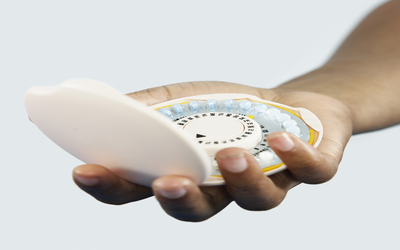There are a number of reasons why you may want to make a change to your birth control – maybe you’ve realised that you’re not one for remembering to pop a pill every day, or you’re worried about the side effects of whatever contraceptive you’re currently using. Whatever the reason, it can be daunting knowing where to begin, with so many options on the market. Here are some popular choices among women over the age of 30 which could prove effective for you too.
The combo pill is a surprising choice, as there a number of myths surrounding the side effects for this particular medication. However, there is a growing body of research which suggests this might not be the enemy as we once thought, with 99 percent success rate and the fact that it can ease some of the symptoms of perimenopausal women, such as mood swings and irregular bleeding. Worried about the increase in cancer? New studies claim it could actually help to prevent ovarian and uterine cancers. If you suffer from migraines, though, it’s probably best avoided, as it is thought to trigger headaches and even raise the risk of a stroke in those who suffer with migraines. The same can be said of women over the age of 35 who smoke, as the oestrogen and smoking can increase the risk of blood clots. Women who are breastfeeding may want to try to progestin-only pill, as this won’t affect the milk supply in the mother – this choice is also popular amongst people who have to avoid the oestrogen pills due to blood clot risks or cardiovascular disease. Smokers are also safe with this particular option, but it’s worth remembering that this is slightly less successful than the combo pill. As with anything though, there are downsides – if you struggle to remember things or don’t stick to a routine, this isn’t the best option. It needs to be taken at the same time every day to be effective.
The IUD, or the Intrauterine Device to give it its full name, is great for women who don’t want to think about birth control for a long time. This is 99 percent effective and lasts for up to 12 years, meaning you could get one fitted when you’re 40 and be set until menopause. The IUD is a T-shaped device which is fitted by a GP into the uterus to stop the egg becoming fertilised. There is a risk of mild discomfort for some women, but it doesn’t last and not everyone gets it. The downsides are that your periods and menstrual cramping may increase, but a newer model has potentially put a stop to that. Although Mirena, the new device, only lasts five years it means you can expect lighter bleeding. The implant has a shorter shelf life at just three years, but is a great no-fuss option for women who want a longer-term contraceptive without the fuss of getting it removed – the implant can be removed very easily. It’s a matchstick-sized rod which is inserted into the upper arm to release hormones which curb the release of an egg. It’s also nearly 100 percent effective, so there’s less to worry about. However, if you’re significantly overweight, there is a chance that the implant won’t work for you as well, so you may want to speak to your GP.
There are numerous choices for contraception – these are just a selection of the most popular. Speak to your GP about the options which are suitable for you, and they will be able to advice which route you should take.
